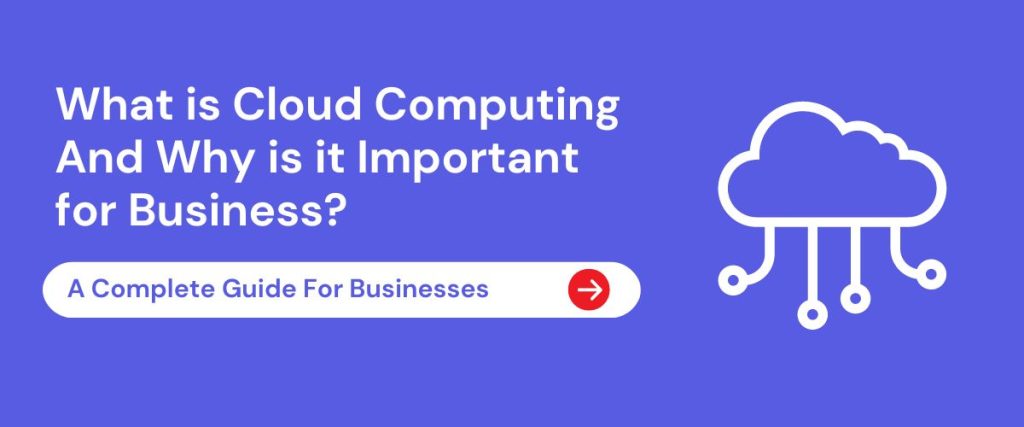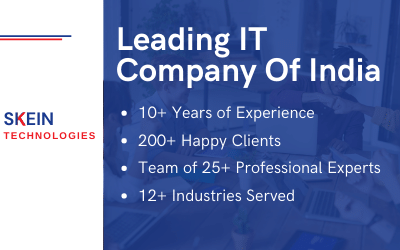Ever wonder how businesses store tons of data, run apps smoothly, and collaborate seamlessly across the globe?
That’s where cloud computing swoops in like a superhero. It’s not just a buzzword anymore; it’s a game-changer.
But what exactly is cloud computing, you ask?
Let’s break it down in simple terms, so you can see why it’s become an indispensable tool for businesses of all sizes.
What Is Cloud Computing?
Cloud computing refers to the delivery of computing services—including servers, storage, databases, networking, software, and more—over the internet (“the cloud”) to offer faster innovation, flexible resources, and economies of scale.
In essence, rather than owning physical hardware or running software applications on individual machines, users can access computing resources on-demand from a cloud service provider.
There are several key characteristics of cloud computing:
- On-Demand Self-Service: Users can provision computing resources such as server instances, storage, and applications without needing human interaction with the service provider.
- Broad Network Access: Services are available over the network and accessed through standard mechanisms that promote use by heterogeneous client platforms (e.g., mobile phones, tablets, laptops, etc.).
- Resource Pooling: Resources (like storage, processing, memory, etc.) are pooled to serve multiple consumers using a multi-tenant model, with different physical and virtual resources dynamically assigned and reassigned according to consumer demand.
- Rapid Elasticity: Cloud services can be rapidly and elastically provisioned and released, often automatically, to scale rapidly outward and inward commensurate with demand. Users can access as much or as little of a service as they need at any given time.
- Measured Service: Cloud systems automatically control and optimize resource use by leveraging a metering capability at some level of abstraction appropriate to the type of service (e.g., storage, processing, bandwidth, and active user accounts). Resource usage can be monitored, controlled, and reported, providing transparency for both the provider and consumer of the utilized service.
Cloud computing can be categorized into three main service models:
Infrastructure as a Service (IaaS)
Offers virtualized computing resources over the internet. Users can rent virtual machines, storage, and networking infrastructure on a pay-as-you-go basis.
Platform as a Service (PaaS)
Provides a platform allowing customers to develop, run, and manage applications without dealing with the underlying infrastructure. PaaS typically includes development tools, databases, middleware, and other software components.
Also Check Out: Salesforce Development Services
Software as a Service (SaaS)
Delivers software applications over the internet on a subscription basis. Users can access these applications via a web browser without needing to install or maintain the software locally.
Now that you know about the basics of Cloud Computing, we will discuss why cloud computing is important for businesses:
5 Reasons Why Cloud Computing is Important For Businesses
Cloud computing has become increasingly vital for businesses of all sizes due to its numerous advantages and capabilities. Here are five reasons why cloud computing is important for businesses:
Cost Efficiency
Cloud computing eliminates the need for businesses to invest heavily in expensive hardware, infrastructure, and maintenance.
Instead, they can access computing resources on a pay-as-you-go basis, which significantly reduces upfront costs. Additionally, cloud services often offer scalability, allowing businesses to scale resources up or down according to their needs, further optimizing costs.
Flexibility and Scalability
Cloud computing provides businesses with the flexibility to access resources and applications from anywhere with an internet connection. This flexibility enables remote work, collaboration, and access to critical data and applications on the go.
Furthermore, cloud services offer scalability, allowing businesses to quickly scale up or down their computing resources based on demand, ensuring optimal performance and cost efficiency.
Enhanced Collaboration and Productivity
Cloud computing fosters collaboration and boosts productivity by enabling employees to access, share, and collaborate on documents and applications in real time from anywhere.
Cloud-based productivity tools such as G Suite and Microsoft Office 365 offer features like file sharing, simultaneous editing, and communication tools that streamline workflow and improve efficiency.
Data Security and Disaster Recovery
Cloud computing providers invest heavily in robust security measures to protect data from cyber threats, ensuring data integrity, confidentiality, and availability.
Additionally, cloud services often include built-in backup and disaster recovery capabilities, allowing businesses to quickly recover data and applications in the event of a disaster or system failure, minimizing downtime and data loss.
Innovation and Competitive Advantage
Cloud computing enables businesses to innovate rapidly by providing access to advanced technologies such as artificial intelligence (AI), machine learning (ML), Internet of Things (IoT), and big data analytics.
Cloud platforms offer a wide range of services and tools that businesses can leverage to develop and deploy innovative solutions quickly and cost-effectively.
By embracing cloud computing, businesses can gain a competitive advantage by staying agile, innovative, and responsive to market demands.
Why Choose Skein Technologies for Cloud Computing Services
Choosing Skein Technologies for cloud computing services offers numerous advantages and is a strategic decision for businesses aiming to leverage the full potential of cloud technology.
Here are some compelling reasons why Skein Technologies stands out:
Expertise and Experience
Skein Technologies boasts a team of highly skilled professionals with extensive expertise in cloud computing technologies.
With years of experience in designing, implementing, and managing cloud solutions, they understand the complexities of modern IT environments and can tailor solutions to meet specific business needs.
Customized Solutions
Skein Technologies takes a consultative approach to understanding each client’s unique requirements and challenges. They design customized cloud solutions that align with business objectives, ensuring optimal performance, scalability, and cost-effectiveness.
Cutting-Edge Technology
Skein Technologies stays abreast of the latest advancements in cloud computing technology.
By leveraging cutting-edge tools, platforms, and methodologies, they empower businesses to harness the full potential of cloud computing for innovation, growth, and competitive advantage.


